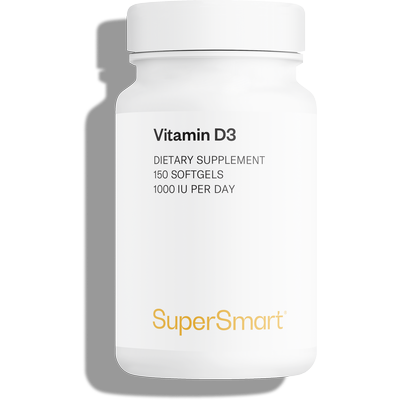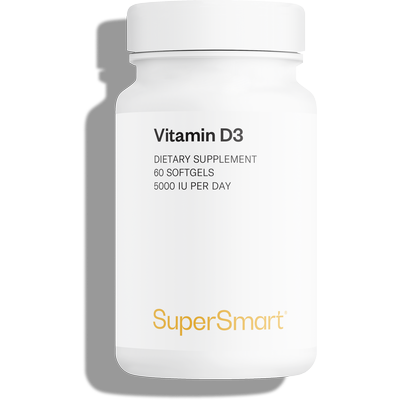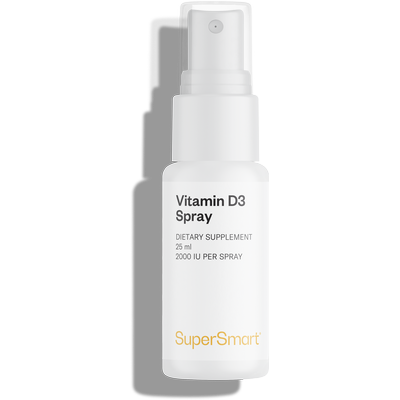14-03-2017
Lack of vitamin D reduces efficacy of some anti-inflammatory treatments
 Known for its role in several of the body’s functions, vitamin D could in some cases have a significant impact on how effective a treatment is. So reveals a new study published in March 2017 in the journal Alimentary Pharmacology and Therapeutics1.in which researchers found that a lack of vitamin D may reduce the efficacy of certain anti-inflammatory treatments.
Known for its role in several of the body’s functions, vitamin D could in some cases have a significant impact on how effective a treatment is. So reveals a new study published in March 2017 in the journal Alimentary Pharmacology and Therapeutics1.in which researchers found that a lack of vitamin D may reduce the efficacy of certain anti-inflammatory treatments.
Observations seen in chronic inflammatory bowel disease
This study looked at patients suffering from chronic inflammatory bowel disease (IBD), the principal examples of which are Crohn’s disease and ulcerative colitis. These mostly affect younger people aged between 20 and 30 and are characterised by inflammation of the wall of part of the digestive tract. Combatting these diseases is a significant challenge given their growing incidence over recent years due to massive industrialisation². Unfortunately, there is, as yet, no cure because the mechanisms of action involved in the development of these diseases remain poorly understood. All that is currently available to improve the daily lives of sufferers are treatments providing symptom relief. A number of researchers are thus concentrating their efforts to better understand these diseases and improve the treatments available. This new study could potentially increase the chances of remission for those suffering from IBD.
The effect of low vitamin D levels on anti-TNF-alpha treatments
Starting from the hypothesis that vitamin D levels may affect the chances of remission in IBD patients, researchers at the Brigham and Women’s Hospital focused on those being treated with anti-TNF-α therapy, a treatment often prescribed in the most severe cases. Data from 521 IBD patients was compared, adjusting for age, gender, IBD diagnosis and type of anti-TNF-α medication, as well as patients’ vitamin D levels around the period of their treatment. The researchers found that patients with normal vitamin D levels responded more rapidly to the anti-TNF-α treatment than those with low vitamin D, and that levels of this vitamin may therefore influence a patient’s odds of remission.
These new findings suggest that supplementing with vitamin D could offer therapeutic benefits in improving the efficacy of certain anti-inflammatory treatments. They also highlight the importance of maintaining adequate vitamin D levels in the body. To this end, various dietary supplements are available which are tailored to individual needs: Vitamin D3 1 000 UI, Vitamin D3 Spray 2000 UI and Vitamin D3 5000 UI.
> Sources :
1. R. W. Winter, E. Collins, B. Cao, M. Carrellas, A. M. Crowell, J. R. Korzenik, Higher 25-hydroxyvitamin D levels are associated with greater odds of remission with anti-tumour necrosis factor-α medications among patients with inflammatory bowel diseases, Alimentary Pharmacologie and Therapeutics, Volume 45, Issue 5, March 2017, Pages 653–659.
2. Inserm, Maladies inflammatoires chroniques de l’intestin (MICI), Dossier réalisé en collaboration avec Pierre Desreumaux, Lille – février 2016.
Order the nutrients mentioned in this article

Healthy individuals now require a minimum dose of 1000 IU a day.
www.supersmart.comFurther reading
24-06-2019
Better known as PEA, palmitoylethanolamide is a natural and powerful active principle discovered in 1957. Since then, it has consistently been the subject of new...
Read more01-08-2018
Inflammation – whether unseen or painful – has always been at the root of a variety of incapacitating ‘diseases of civilisation’, such as cardiovascular disease,...
Read more29-07-2019
Magnesium has until now been mainly known as an essential mineral for nervous system balance, cardiovascular regulation, muscle function and bone health. Now it seems...
Read more© 1997-2025 Fondation pour le Libre Choix
All rights reserved
All rights reserved
Free
Thank you for visiting our site. Before you go
REGISTER WITHClub SuperSmart
And take advantage
of exclusive benefits:
of exclusive benefits:
- Free: our weekly science-based newsletter "Nutranews"
- Special offers for club members only



















